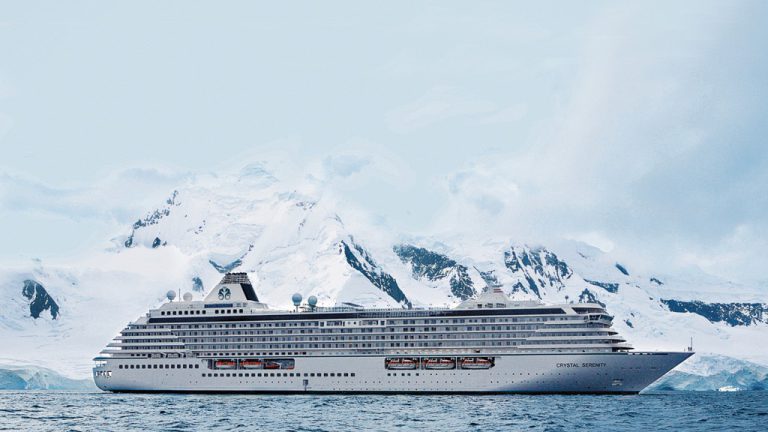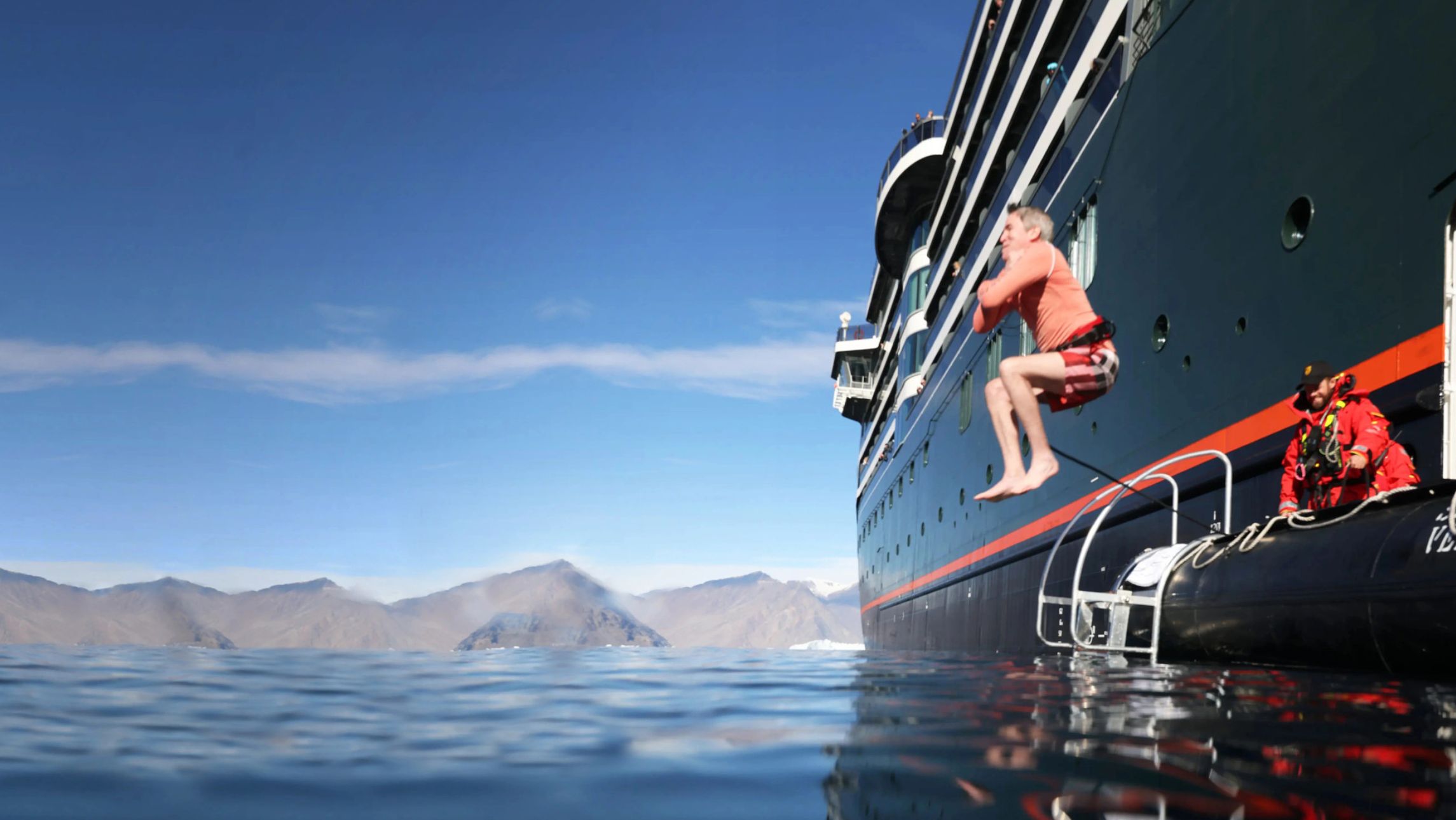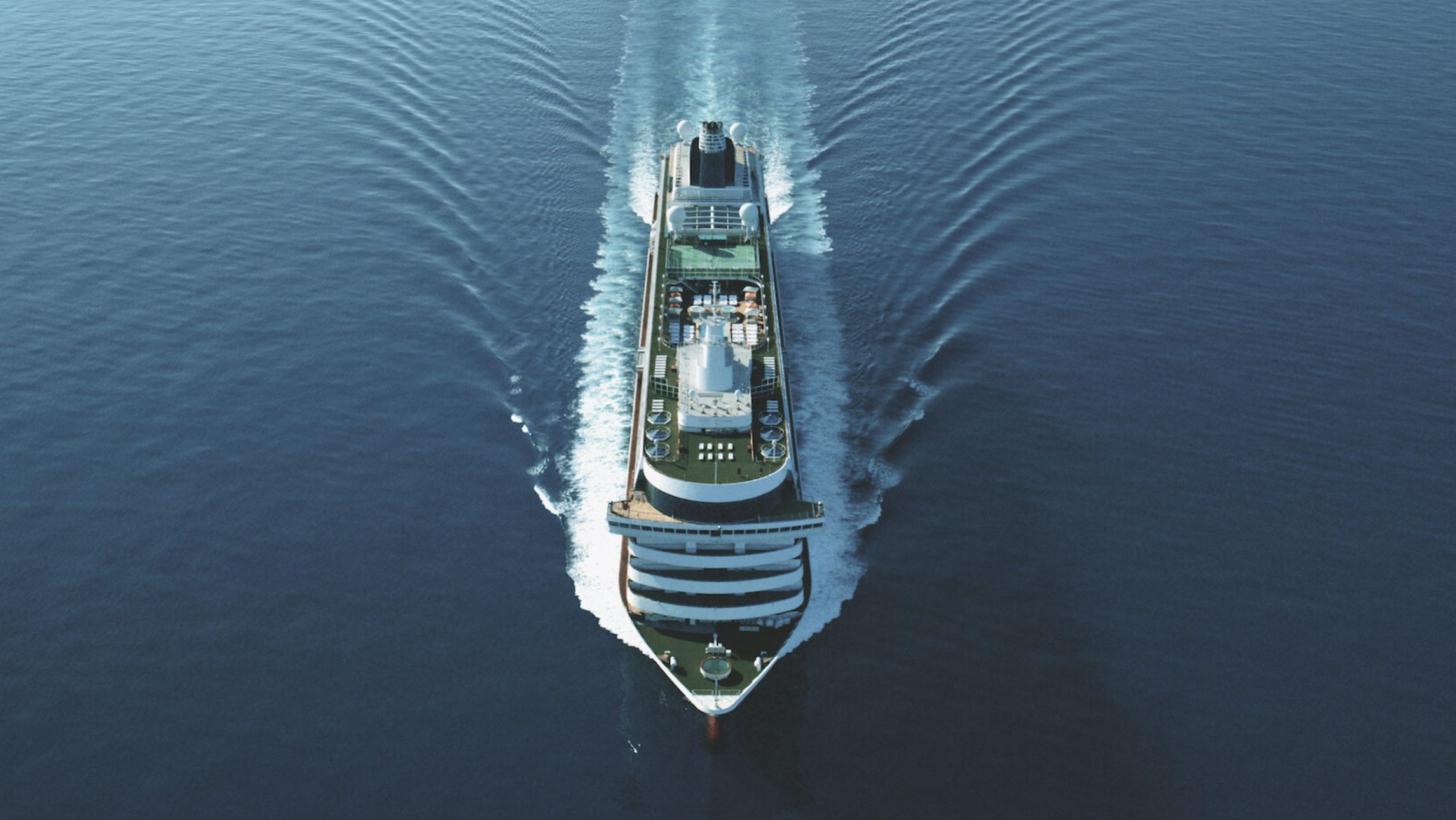The Crystal Serenity has embarked on a voyage which is the first of its kind – through the Arctic’s treacherous Northwest Passage.
Waters that once had so much ice they couldn’t accommodate an ocean liner has now melted to a point where there is passge for a ship of the Serenity’s size.
The voyage is possible, scientists say, because of climate change. And while some cruisers are excited, environmentalists have heavily criticised the line for attempting the sailing.
The cruise will call at the remote Alaskan town of Nome before heading farther north. The ship will be accompanied by the RRS Ernest Shackleton, which is a British supply and icebreaking vessel.
This sailing marks the first time a passenger ship this size has sailed the Northwest Passage which is one of the most pristine and untouched parts of the world.
Passengers onboard the US$350 million Crystal Serenity paid between US$22,000 and $120,000 for the journey which took three years of planning and preparation to avoid any accidents.
Guests also had to purchase US$50,000 in emergency evacuation insurance in order to sail through the Northwest Passage.
“Every aspect of this voyage is literally unparalleled in the luxury cruise industry, and nearly the entire travel industry as well,” Crystal’s CEO and president, Edie Rodriguez, said in a statement.
“It is a tremendous undertaking to embark on such a historic journey, but also an honour for us to be able to offer the world’s most discerning travellers the opportunity to experience a region of the world that so few others have or ever will.”
Guests can go on helicopter rides over glaciers and sightseeing for polar bears and other wildlife.
Elena Agarkova, senior program officer for the World Wildlife Fund told French press agency, AFP that while the cruise line has taken measures to offset the environmental impact, the organisation is concerned about the safety and protecting the wildlife as well as the region’s indigenous communities.
“This voyage is symbolic of the rapid changes happening in the Arctic,” Ms Agarkova told AFP.
“Today, we do not have the right rules in place needed to reduce risks to wildlife and people, nor the capacity needed to respond to accidents.”
She said that as climate change accelerates and Arctic shipping and leisure travel grows, governments individually and collectively must match that pace in managing the region.
“Cruise ships of the size of the Crystal Serenity are essentially huge cities,” she noted. “They are going to have some 1,700 passengers, including crew, on board and they are going to be discharging thousands of gallons of sewage and graywater as they sail through the Arctic waters.”
The line will not be using heavy fuel oil and will be discharging waster water at least 12 nautical miles from shore, but Ms Agarkova said the waste will still be going into the Arctic ecosystem on a daily basis.
The Crystal Serenity is scheduled to dock in New York on September 17.








